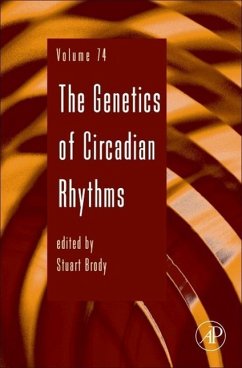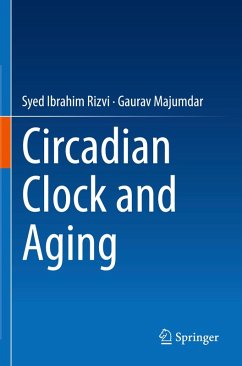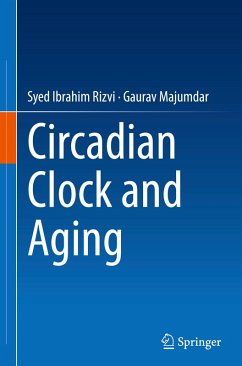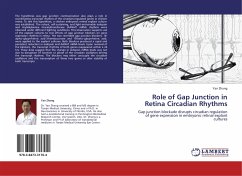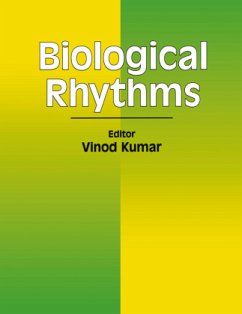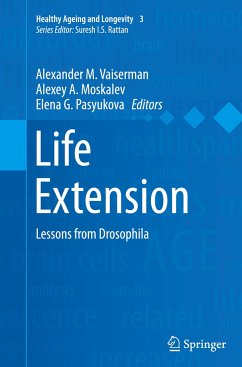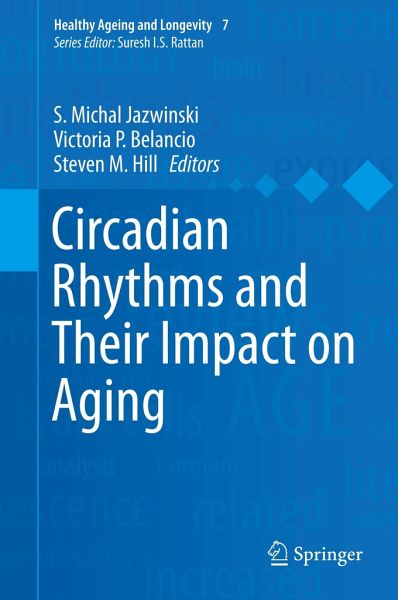
Circadian Rhythms and Their Impact on Aging

PAYBACK Punkte
68 °P sammeln!
Biological rhythms time the ebb and flow of virtually every physiological process, and their mutual coordination guarantees the integrity of the organism over space and time. Aging leads to the disintegration of this coordination, as well as to changes in the amplitude and/or frequency of the underlying rhythms. The results of this are accelerated loss of health during aging, and in experimental model systems curtailed lifespan occurs. This book will examine the machinery that constitutes circadian systems and how they impact physiologic processes. It will also discuss how disturbances of circ...
Biological rhythms time the ebb and flow of virtually every physiological process, and their mutual coordination guarantees the integrity of the organism over space and time. Aging leads to the disintegration of this coordination, as well as to changes in the amplitude and/or frequency of the underlying rhythms. The results of this are accelerated loss of health during aging, and in experimental model systems curtailed lifespan occurs. This book will examine the machinery that constitutes circadian systems and how they impact physiologic processes. It will also discuss how disturbances of circadian rhythms can lead to complex diseases associated with aging. Much of this treatment will focus on metabolism and genome stability. Importantly, the chapters in this book will encompass work in several different models, in addition to human. The book will conclude with a discussion of modeling approaches to biologic cycles and chronotherapy, for future research and translation.





